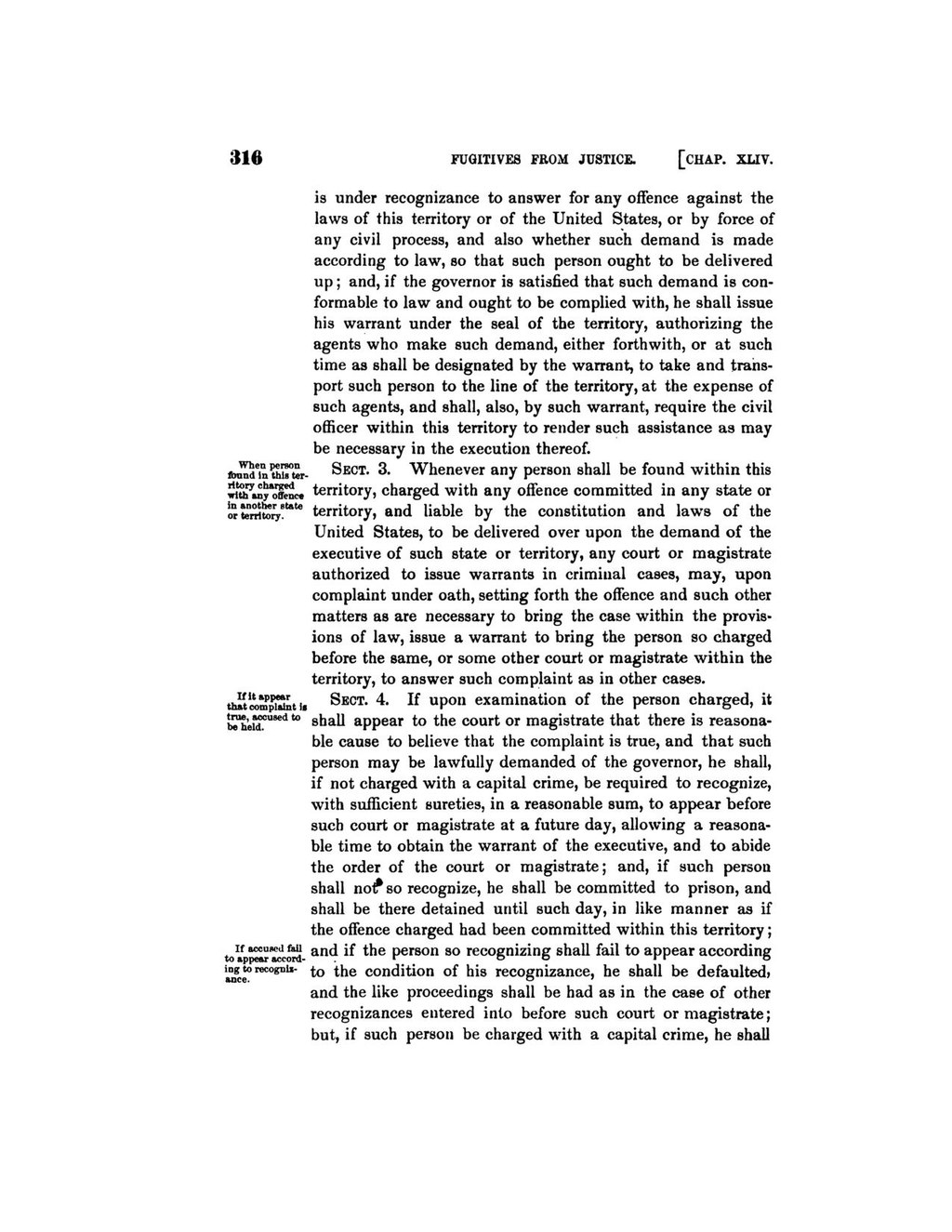is under recognizance to answer for any offence against the laws of this territory or of the United States, or by force of any civil process, and also whether such demand is made according to law, so that such person ought to be delivered up; and, if the governor is satisfied that such demand is conformable to law and ought to be complied with, he shall issue his warrant under the seal of the territory, authorizing the agents who make such demand, either forthwith, or at such time as shall be designated by the warrant, to take and transport such person to the line of the territory, at the expense of such agents, and shall, also, by such warrant, require the civil officer within this territory to render such assistance as may be necessary in the execution thereof.
Sect. 3. Whenever any person shall be found within this territory, charged with any offence committed in any state or territory, and liable by the constitution and laws of the United States, to be delivered over upon the demand of the executive of such state or territory, any court or magistrate authorized to issue warrants in criminal cases, may, upon complaint under oath, setting forth the offence and such other matters as are necessary to bring the case within the provisions of law, issue a warrant to bring the person so charged before the same, or some other court or magistrate within the territory, to answer such complaint as in other cases.
Sect. 4. If upon examination of the person charged, it shall appear to the court or magistrate that there is reasonable cause to believe that the complaint is true, and that such person may be lawfully demanded of the governor, he shall, if not charged with a capital crime, be required to recognize, with sufficient sureties, in a reasonable sum, to appear before such court or magistrate at a future day, allowing a reasonable time to obtain the warrant of the executive, and to abide the order of the court or magistrate; and, if such person shall not so recognize, he shall be committed to prison, and shall be there detained until such day, in like manner as if the offence charged had been committed within this territory; and if the person so recognizing shall fail to appear according to the condition of his recognizance, he shall be defaulted, and the like proceedings shall be had as in the case of other recognizances entered into before such court or magistrate; but, if such person be charged with a capital crime, he shall that complaint is